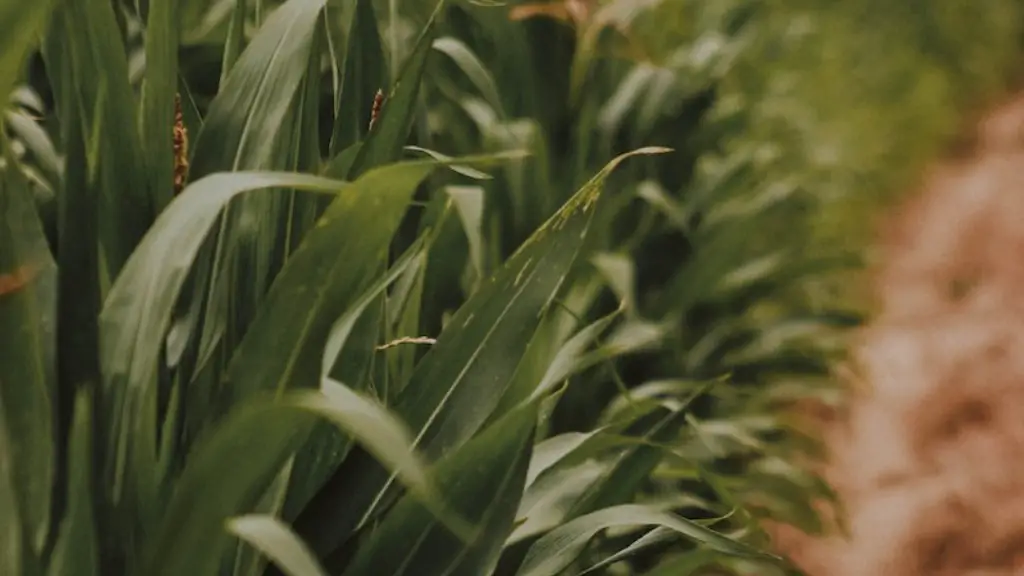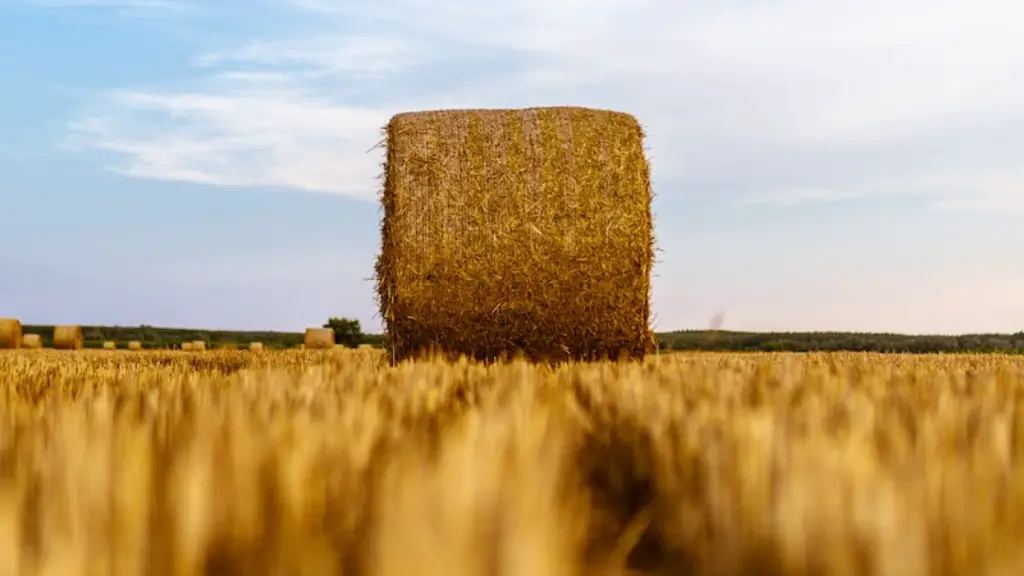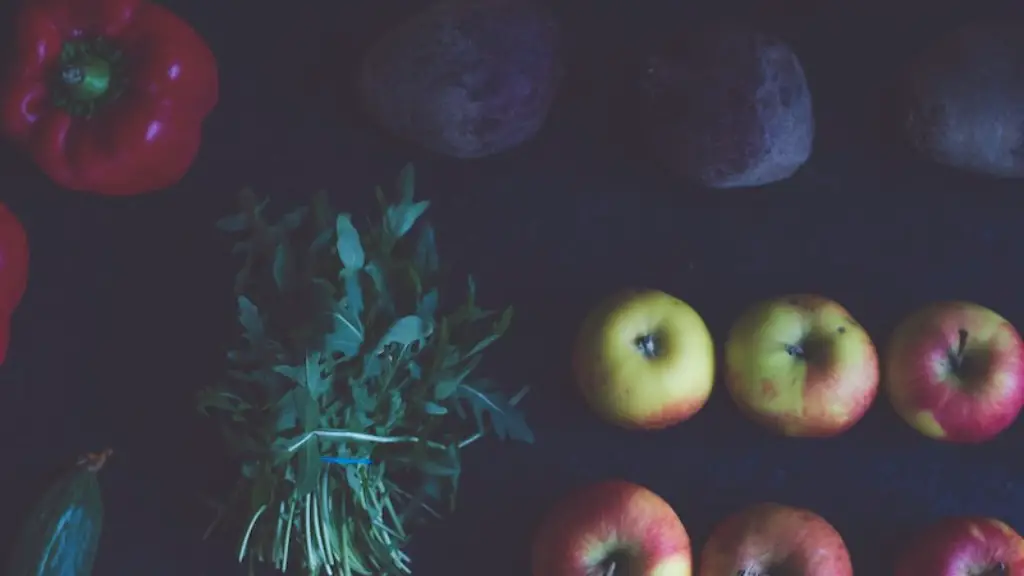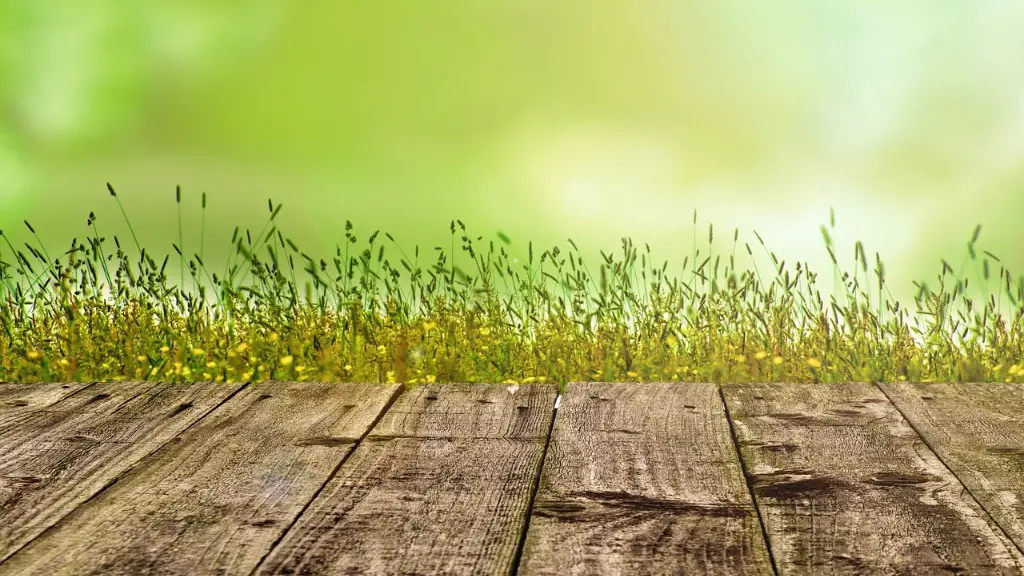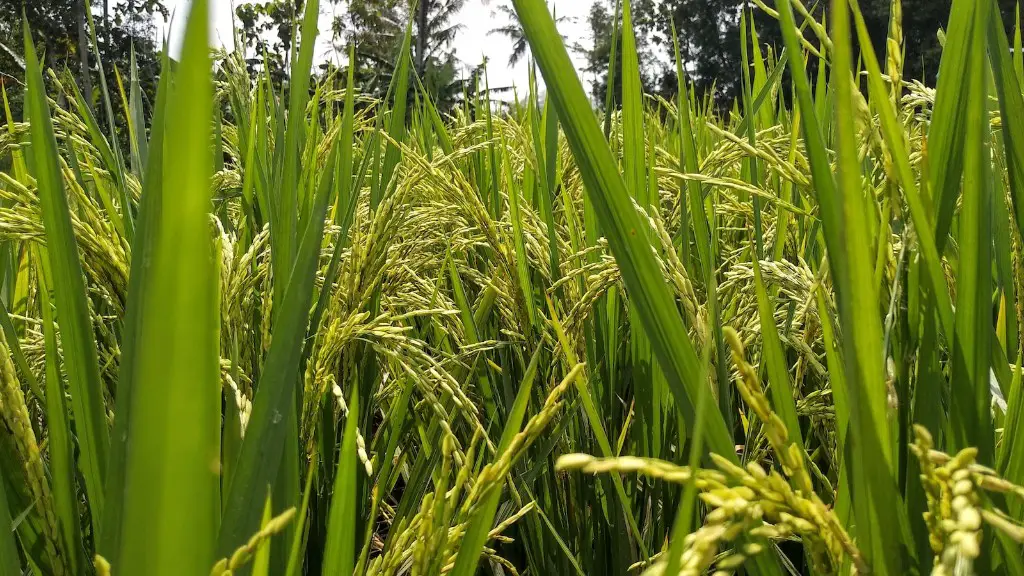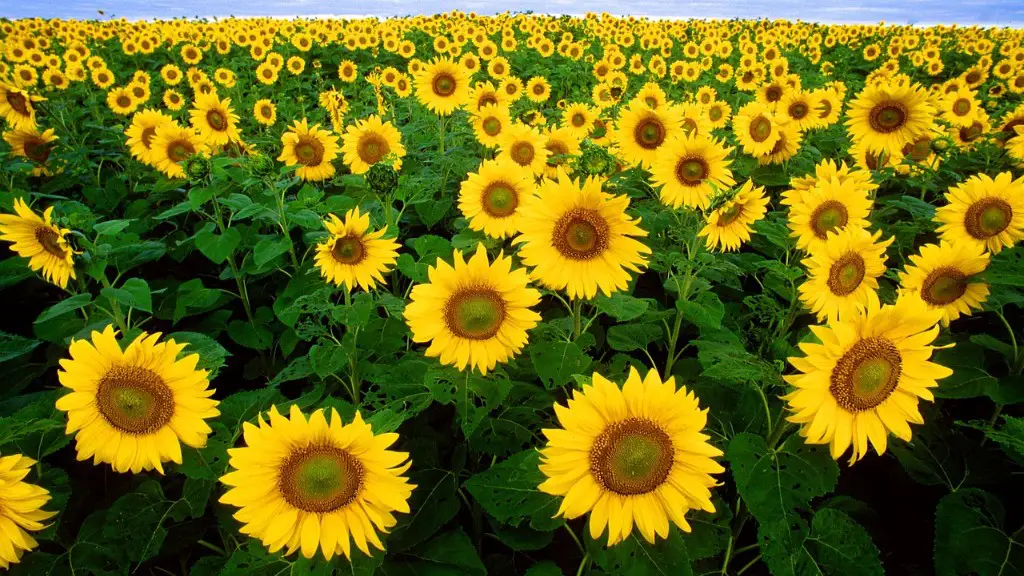In many ways, gardening or agriculture affects succession. The first way is that it can create open areas in a well-vegetated landscape. This is because the gardener or farmer often clears away the vegetative cover to make way for their crops. This can create gaps in the landscape that allow for new species to move in and colonize the area. Another way gardening or agriculture can affect succession is by introducing new species to an area. This is because many times, farmers and gardeners will bring in new plants or trees to add to their landscape. These new species can outcompete the native species and eventually displace them.
succession is the process of change in an ecosystem over time. The main drivers of succession are changes in the abiotic conditions, such as climate or disturbance events, and changes in the biotic conditions, such as the introduction of new species. succession can be rapid, such as after a fire, or slow, such as the replacement of an old-growth forest by a younger one.
Gardening and agriculture can affect succession in a few different ways. Firstly, the activities of gardeners and farmers can disturb the natural succession process by disturbing the soil, removing plants and animals, and introducing new species. Secondly, the products of gardening and agriculture, such as fruits and vegetables, can act as seed sources for new plants, which can then change the composition of the ecosystem. Finally, the activities of gardeners and farmers can alter the abiotic conditions of an ecosystem, such as by changing the soil nutrients or the amount of water available.
What is succession in agriculture?
Succession is a very important ecological process, and one of the earliest to be studied. It simply refers to the predictably and orderly progression of change in the plant species that dominate an area. This is a very important process because it helps to ensure the continued health and productivity of an ecosystem.
Ecological succession is a continual and natural process. It occurs in agriculture in regions that are constantly disturbed and where the ecological community has been gone. In most instances, agricultural ecosystems have a specific function and structure that is predetermined. Crop yield determines management success.
How does gardening relate to agriculture
There are some key differences between farmers and gardeners when it comes to growing food or plants. Farmers grow their crops on a much larger scale than gardeners, and they often use more machines to do so. Gardeners, on the other hand, generally grow their crops on a smaller scale and do more things by hand. Both farmers and gardeners need sun, soil, and water to grow their crops successfully.
Horticulture and agriculture are often thought of as two separate industries, but they are actually quite interdependent. Horticulture is the science and art of growing and modifying plants for the purposes of beautification and utility, and agriculture is the science and art of producing food, feed, and fiber crops. Both industries rely heavily on each other for success. For example, without horticulture, agriculture would not have access to the many different varieties of plants that have been bred for specific purposes. And without agriculture, horticulture would not have the necessary raw materials to produce the beautiful and useful plants that we enjoy.
How does farming prevent succession?
Succession is the process by which an ecosystem changes over time. It can refer to the sequence of plant species that colonize an area after a disturbance, or the gradual changes in an animal community as a result of changes in the environment.
There are many ways to prevent succession from occurring. One way is to introduce grazing animals into an area. As they eat the shoots of shrubs and trees, they prevent these plants from establishing themselves and succession is halted. Another way to prevent succession is to regularly disturb an ecosystem, such as through prescribed burns. This prevents one plant or animal species from becoming dominant and succession from occurring.
Ecological succession is the process of change in the species composition of an ecological community over time. The main causes of ecological succession include the biotic and climatic factors that can destroy the populations of an area. Wind, fire, soil erosion and natural disasters include climatic factors. Biotic factors include competition, predation, and mutualism.
What are the three factors that influence succession?
As plants and animals die, their remains decompose and add nutrients back into the soil. This creates new opportunities for other species to invade and begin the succession process anew. The environment surrounding an area of succession, including abiotic factors such as soil quality, water, and climate, will determine the species that are best suited to take advantage of these new opportunities. In turn, these species will create new opportunities for other species, and the cycle of succession will continue.
Pesticides, fertilizers, and other toxic farm chemicals can have a devastating impact on the environment. They can poison fresh water, marine ecosystems, air and soil, and they can remain in the environment for generations. Many pesticides are suspected of disrupting the hormonal systems of people and wildlife, and fertilizer run-off can impact waterways and coral reefs.
How does agriculture affect ecological systems
When plant communities are destroyed, the animal life in the area is also endangered. This can lead to the extinction of ecologically important species.
Home vegetable gardens can provide a significant financial benefit to households, beyond the cost of materials and supplies. The average value of produce grown in home gardens is $677, although this value can vary depending on local environmental conditions, gardening practices, and crop choices. For households looking to maximize the financial return from their home garden, it is important to consider these factors in order to produce a high-value crop.
What are 3 benefits of gardening?
Gardening can be a great way to improve your health in a variety of ways. For example, gardening can build self-esteem, reduce stress, and make you happy. Additionally, gardening can improve your hand strength and give you a boost of vitamin D. Furthermore, gardening is a great activity for the whole family to enjoy.
Community gardens are a great way to mitigate some of the problems plaguing urban areas. They can increase the availability of nutritious foods, strengthen community ties, reduce environmental hazards, reduce food miles, and create a more sustainable system.
Why is gardening important
Gardening is a great way to get your daily dose of Vitamin D and the weight-bearing exercise is good for your bones and heart. One study even found that gardening can decrease your risk of dementia! Additionally, you can continue to garden even as you get older – making it a great hobby for all ages.
Horticulture is the practice of growing flowers, fruit, and vegetables, while Agriculture is growing crops for food, farming, and keeping animals. The difference between the two is that Horticulture is more focused on the aesthetics of the plants, while Agriculture is more focused on the practicality of the plants.
What is the purpose of gardening?
Gardening is a great way to improve your endurance and strength, reduce stress levels and promote relaxation. Just being in the garden can create a sense of well-being. So get out there and get gardening!
A climax community is a state in which an ecosystem is considered to be stable and self-perpetuating. Ecosystems tend to reach a state of climax through a process of succession, in which different species of plants and animals establish themselves in an area over time. Once a climax community is reached, it is thought to be resistant to change and able to maintain itself without outside intervention.
Why is farm succession planning important
Succession planning is an important process for farm families to go through to ensure the future of their farm. It can be a difficult process, but it is worth it to ensure the farm is passed on to the next generation smoothly. Having a succession plan in place will help determine the future of the farm and make the transition easier for all involved.
Both natural and human disturbances can interrupt succession. Natural disturbances, such as wind, fire, and disease, can disrupt the successional process by killing off plants and animals and altering the environment. Human disturbances, such as harvest, can also interrupt succession by removing plants and animals from the environment.
Conclusion
“Gardening or agriculture affects succession by promoting the growth of new plants and animals. This process can help to restore an area to its original condition after it has been disturbed. For example, if a forest is clear-cut, the addition of new trees through gardening or agriculture can help the forest to regrow.”
Succession is the natural process of change and development that takes place in an ecosystem over time. It is a dynamic process, influenced by many environmental factors, that results in the establishment of a new community of plants and animals. Gardening and agriculture can have a significant impact on succession, by altering the conditions of an ecosystem and affecting the species that are present.
